Academics & Research
Seek Wisdom
Academic inquiry and self-discovery go hand-in-hand. We encourage you to ask the big questions: What are my values? How can my passions contribute to the greater good? What is my calling?
A Notre Dame education is designed around enduring questions and students are given the resources to explore the answers. We’ve created an academic culture that has earned us a place among the nation’s top 25 institutions of higher learning, according to surveys from U.S. News & World Report, Princeton Review, Time, Kiplinger’s Report, and others.
Notre Dame students learn from faculty who are highly sought-out experts in their fields and they benefit from the extensive resources of a preeminent research university—from facilities like the dynamic Jordan Hall of Science, to the intersection of arts and scholarship at the DeBartolo Performing Arts Center, to the support provided by campus centers like the Flatley Center for Undergraduate Scholarly Engagement.
Opportunities for inquiry abound because there’s nothing like the joy of discovery. Students come to Notre Dame not only to learn how to think, but to live fully. So a Notre Dame education goes beyond simply gaining intellect. It’s a path to wisdom.
- 97% of students return for their second year (one of the highest rates in the country).
- 96% of students graduate on time, one of the highest graduation rates in the nation.
- 97% of graduates are traditionally placed in careers, graduate schools, or service opportunities within six months of graduation.
- 89% of students participate in internships or conduct research before they graduate.
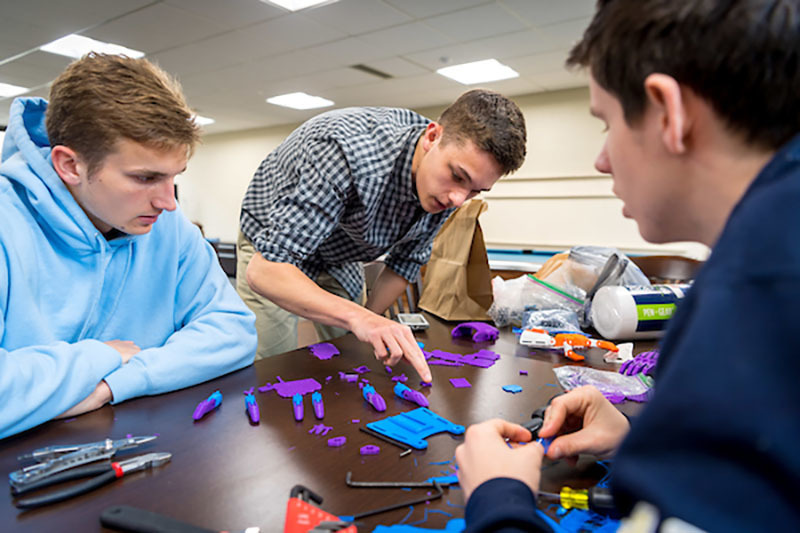
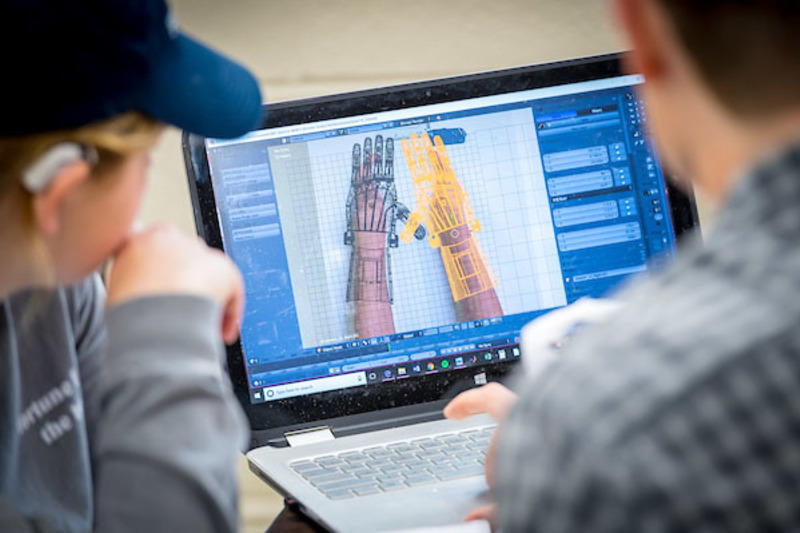
Majors
You have more than 70 paths to a bachelor’s degree. The choice is yours.
- College of Arts and Letters
- College of Engineering
- Mendoza College of Business
- College of Science
- Keough School of Global Affairs
- School of Architecture
College of Arts and Letters
- Africana Studies
- American Studies
- Anthropology
- Arabic
- Art History
- Chinese
- Classics
- Computer Science
- Design
- Economics
- Education, Schooling and Society (supplementary major)
- English
- Film, Television, and Theatre
- French
- Gender Studies
- German
- Greek and Roman Civilization
- History
- International Economics
- Italian
- Japanese
- Latino Studies (supplementary major)
- Mathematics
- Medieval Studies
- Music
- Neuroscience and Behavior
- Philosophy
- Philosophy and Theology
- Political Science
- Pre-Health (supplementary major)
- Program of Liberal Studies
- Psychology
- Romance Languages and Literatures
- Russian
- Sociology
- Spanish
- Studio Art
- Theology
College of Engineering
- Aerospace Engineering
- Chemical Engineering
- Civil Engineering
- Computer Engineering
- Computer Science
- Electrical Engineering
- Environmental Engineering
- Mechanical Engineering
Mendoza College of Business
- Accountancy
- Business Analytics
- Finance
- Marketing
- Strategic Management
College of Science
- Applied & Computational Mathematics and Statistics
- Biochemistry
- Biological Sciences
- Chemistry
- Environmental Sciences
- Mathematics
- Neuroscience and Behavior
- Physics
- Physics in Medicine
- Preprofessional Studies
- Science - Computing
- Science - Education
- Statistics
Keough School of Global Affairs
- Global Affairs
- Asian Studies (supplementary major)
- Peace Studies (supplementary major)
School of Architecture
- Architecture (5-year program)
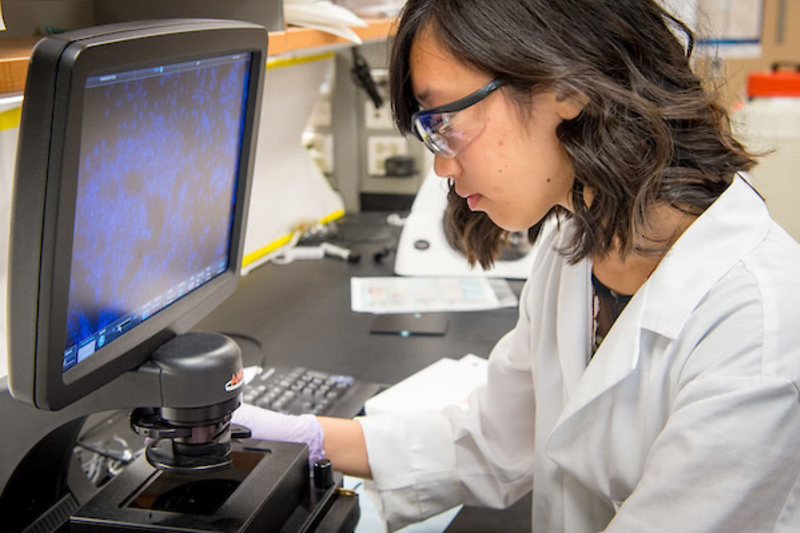
Undergraduate Research
Leave no question unexplored.
No matter which major you choose, Notre Dame offers opportunities for undergraduate research and creative expression. As a Notre Dame student, you can study ancient architecture in Rome, help advance cancer research at the Mike and Josie Harper Cancer Research Institute, or write, produce, and star in your own musical performed at the DeBartolo Performing Arts Center. With support from a network of campus resources, like the Flatley Center for Undergraduate Scholarly Engagement, along with world-class research facilities, these are all things that Notre Dame students are doing right now. We want you to follow your curiosity because we know it will lead to life-changing experiences and world-changing discoveries.
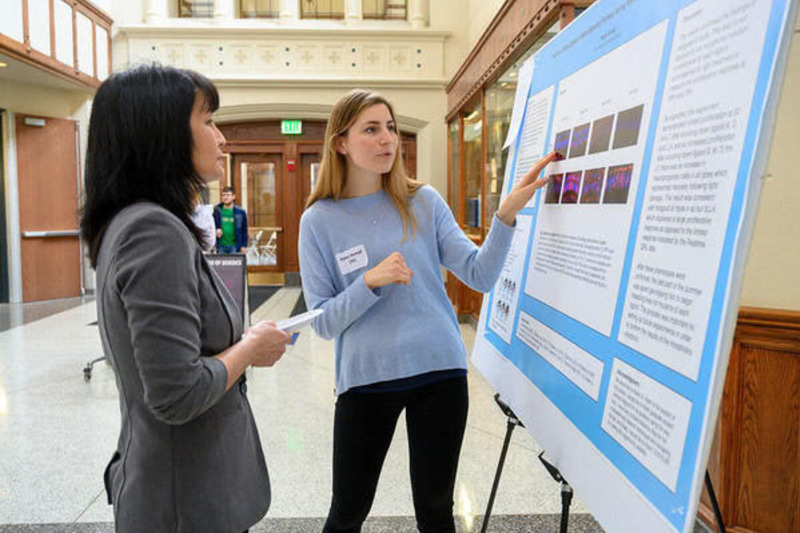
World Changing Research
Neuroscience and behavior major Haley Kempf ’20 (right) studies zebrafish in order to discover a link between the fish and human cell regeneration in diseases of the eye, which affects millions worldwide.Our Faculty
Experts in Every Field
Beyond their research accomplishments and accolades, Notre Dame faculty are first and foremost your teachers, mentors, and partners in intellectual discovery. They will push you to consider new perspectives, help you identify meaningful research and internship opportunities in your field, and offer guidance as you prepare to make the world a better place.
- 27 professors have been elected to the American Academy of Arts and Sciences, the nation's leading learning academy.
- SINCE 1999 Notre Dame faculty members have won more fellowships (68) from the National Endowment for the Humanities than any other institution in the country.
- 9:1 Student to faculty ratio
-
90% of full-time faculty have terminal degrees and doctorates.
Featured Faculty
These three faculty members were recently awarded fellowships from National Endowment for the Humanities.
At Notre Dame, these types of accolades are more common than you think. Your professors are at the top of their respective fields, conducting research that is changing the world. For four years, you get to debate and interact with them closely in small classes, connect with them during their office hours, and work alongside them on meaningful research projects.
-
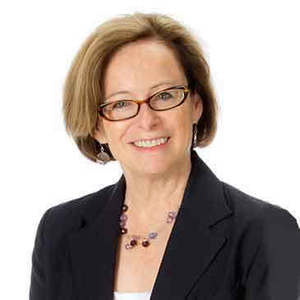
Julia Douthwaite
Professor of French and Francophone Studies
-
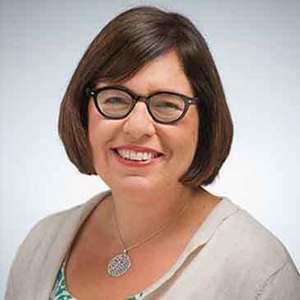
Amy Mulligan
Assistant Professor of Irish Language and Literature
-
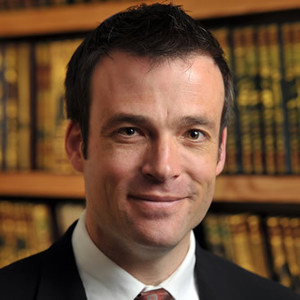
Gabriel Said Reynolds
Professor of Islamic Studies and Theology
Revolutionary Resources
We believe there’s always something big waiting to be discovered—and we’re here to find it. That kind of exploration requires spaces that encourage investigation and innovation. Through all of our labs and more than 20 core research facilities, our faculty provide support and students engage in many, wide-ranging areas of research and creative pursuits. The facilities below are a small sample of the extensive resources available to undergraduate students.
-
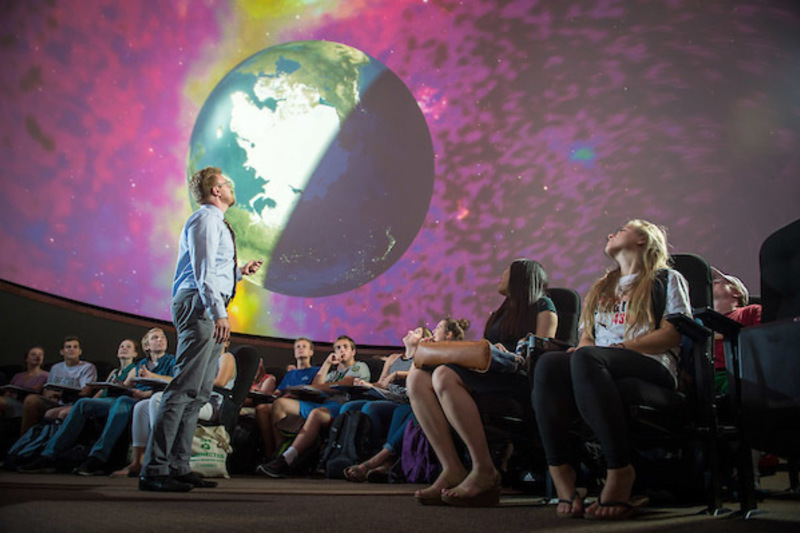
Digital Visualization Theater
The 50-foot domed ceiling of the Digital Visualization Theater, located in the Jordan Hall of Science, allows students to explore 3D models of complex molecules, view the internal structure of the human body as revealed by CT or MRI medical imaging technologies, and to hurtle through outer space, from the Notre Dame campus to the edge of the observable universe.
-
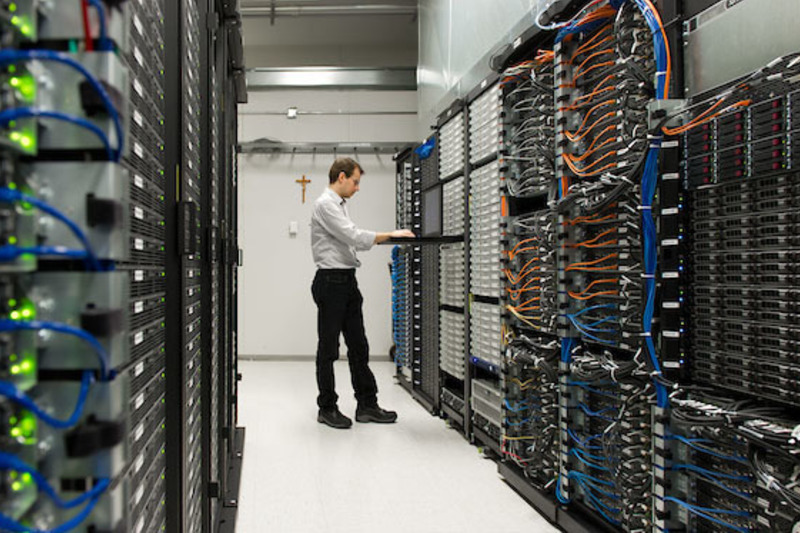
Center for Research Computing
Undergraduates can take advantage of the resources at the Center for Research Computing, a state-of-the-art High Performance Computing (HPC) facility. Students can conduct research using a variety of resources including the Geospatial Analysis Laboratory, the Green Cloud, an energy-efficient computational grid, and VisArray, a visualization framework for rendering scientific data.
-
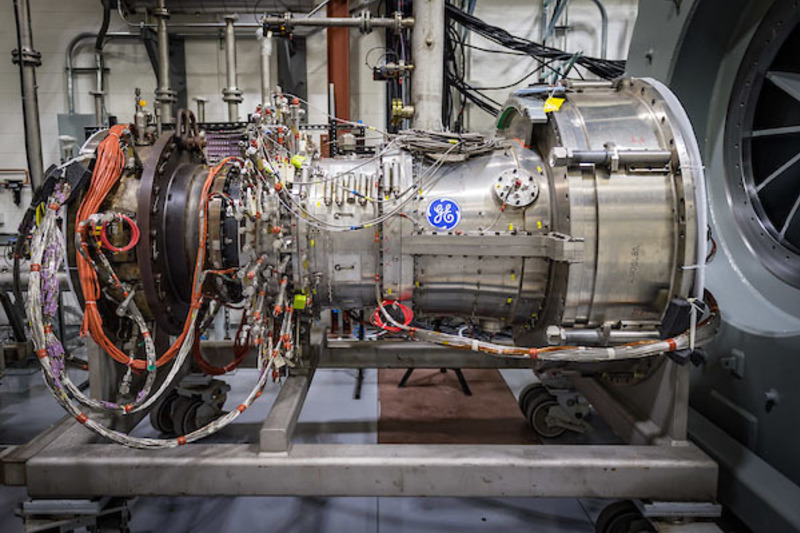
Turbomachinery Laboratory
The Notre Dame Turbomachinery Laboratory (NDTL) is a 25,000 square foot facility located in Downtown South Bend’s Ignition Park. At this world-class turbomachinery research and testing facility, researchers study and test components for gas turbine engines that are used by commercial and military aircraft, power plants, and the oil and gas industry.